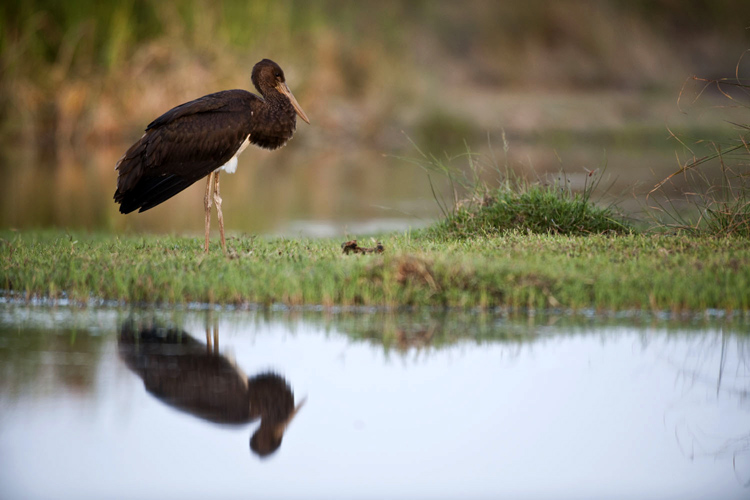Researchers have found that eggs of two fish species can survive passage through the digestive tract of waterfowl after being swallowed, and this finding may help explain the long-standing mystery of how some species of fish colonize isolated lakes and ponds. After finding eggs in the droppings of the Coscoroba swan collected on the banks of Brazilian lakes, the researchers decided to test whether eggs of two annual fish species (the killifish Austrolebias minuano and Cynopoecilus fulgens) remained viable even after they have been ingested by birds and expelled in their feces. The researchers mixed 650 fish eggs into the food of a captive coscoroba swan. Five live fish eggs were recovered from the faeces, which continued their development and were able to successfully hatch. The live eggs had survived as long as 30 h inside the guts of the swan. The results show the possibility that fish eggs can be transported in the digestive tract of migratory birds, which regularly fly between lakes and other wetlands. This is the first scientific study to demonstrate this, although scientists have long wondered how fish manage to colonize remote places and have speculated that birds may be able to carry fish eggs stuck to their feet, beaks or feathers. This new discovery helps to resolve a historical debate held since the XIX century by naturalists. The eggs of killifish may be uniquely resistant as they can often survive long periods of drought in the mud of dried-out ponds. It remains to be seen in future studies if other kinds of fish also have this amazing ability to move as eggs inside waterbirds. informacion[at]ebd.csic.es: Silva et al (2019) Killfish eggs can disperse via gut passage through waterfowl. Ecology https://doi.org/10.1002/ecy.2774
https://esajournals.onlinelibrary.wiley.com/doi/10.1002/ecy.2774

 Las altas temperaturas están provocando que las lagunas y las marismas de Doñana pierdan agua rápidamente
Las altas temperaturas están provocando que las lagunas y las marismas de Doñana pierdan agua rápidamente




